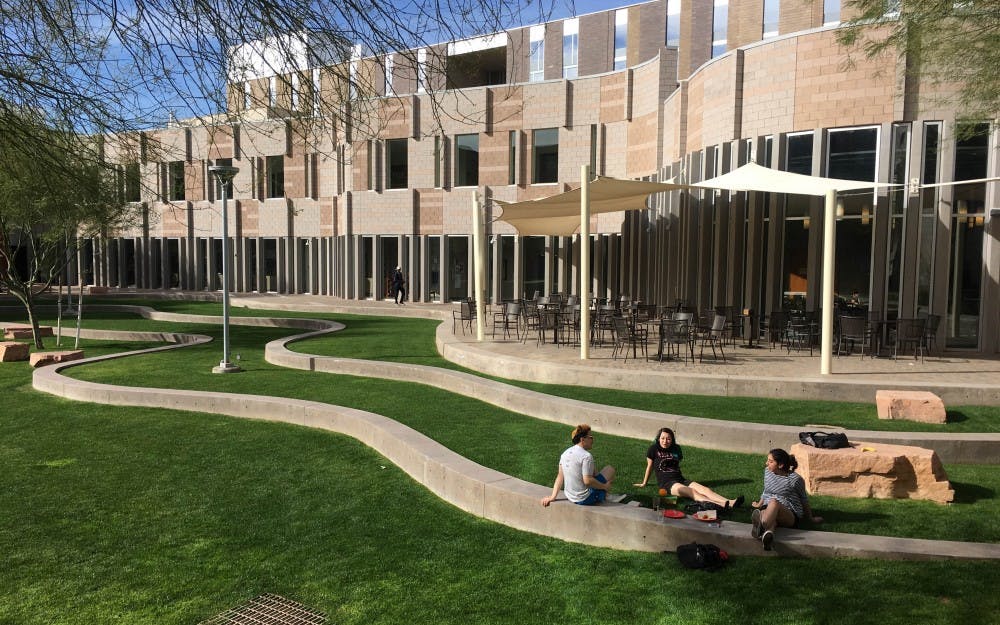While on-campus housing is an exciting opportunity for undergraduates during their first year of college, for some, the allure wears off after they finish their second semesters. While most ASU students have the option to live off campus after freshman year is over, students in Barrett, the Honors College have to stay for two years.
When some Barrett students realize they must live on campus through their sophomore year, they may decide to drop Barrett altogether to get out from under the rule. But that might not be the best choice.
A closer look at the policy and how students who follow it perform shows it’s far more beneficial to stay the two years than to try and live elsewhere. One study from a student at Brigham Young University shows that students who live off campus are more than twice as likely to get a GPA below 1.0.
“There’s reasoning behind keeping our students here for two years,” Ashley McDonald, a recruiting assistant for Barrett, said. “One of those reasons is that it’s proven that they will statistically be more successful living on campus academically as well as socially and their connections they make.”
The close proximity to classrooms and the unique benefits available to Barrett residents, such as resume-building advice and student leader events, help create an accessible learning environment.
Freshman year is full of new experiences for students, as most of them get their first taste of freedom in the real world and meet lots of new people. Therefore, Barrett stresses that students live on campus their freshman year and rarely offers exemptions.
Barrett strives to offer students as many opportunities as possible to get the most out of their individual Barrett experiences. Once students finish their first year in Barrett, however, some feel living on campus isn’t entirely necessary, and they look to move off campus.
Taylor Place in downtown Phoenix, for example, costs Barrett students anywhere from $8,970 to $9,688, depending on which room design the student opts for, and that cost doesn’t factor in a mandatory meal plan that cost from $1,050 to $2,610 a semester.
Needless to say, living on campus is expensive, but the benefit of doing so outweighs the two-year financial obligations and potential stress living off campus sophomore year can cause.
“By the second semester of my sophomore year, I was ready to leave the dorms,” McDonald said. ”Now living off-campus and having to pay rent, buy groceries and make dinner all the time, I don’t know if I would’ve been at a place to successfully do that as a sophomore. That’s not necessarily something that’s touched on. There’s a lot more responsibilities to that.”
Priorities may differ between freshmen and older students.
Many freshmen are more focused on the social possibilities of living off campus and might not think of the educational advantages of staying in Barrett when they’re deciding whether to expedite the off-campus living experience.
Overall, on-campus housing offers immediate access to classes, resources and opportunities and provides safety and security for students every day.
Students should look to take advantage of as many of those resources as possible to bolster their Barrett learning experiences when they have the chance and shouldn’t be too focused on getting off campus.
“If you’re a Barrett student and you care enough about being in Barrett and how much it helps you, you’re going to stay,” McDonald said. “You’re going to see the benefits and realize it’s just one year.”
Reach the columnist at Steven.Slobodzian@asu.edu or follow @PSlobodzianASU on Twitter.
Like The State Press on Facebook and follow @statepress on Twitter.
Editor’s note: The opinions presented in this column are the author’s and do not imply any endorsement from The State Press or its editors.
Want to join the conversation? Send an email to opiniondesk.statepress@gmail.com. Keep letters under 500 words and be sure to include your university affiliation. Anonymity will not be granted.





